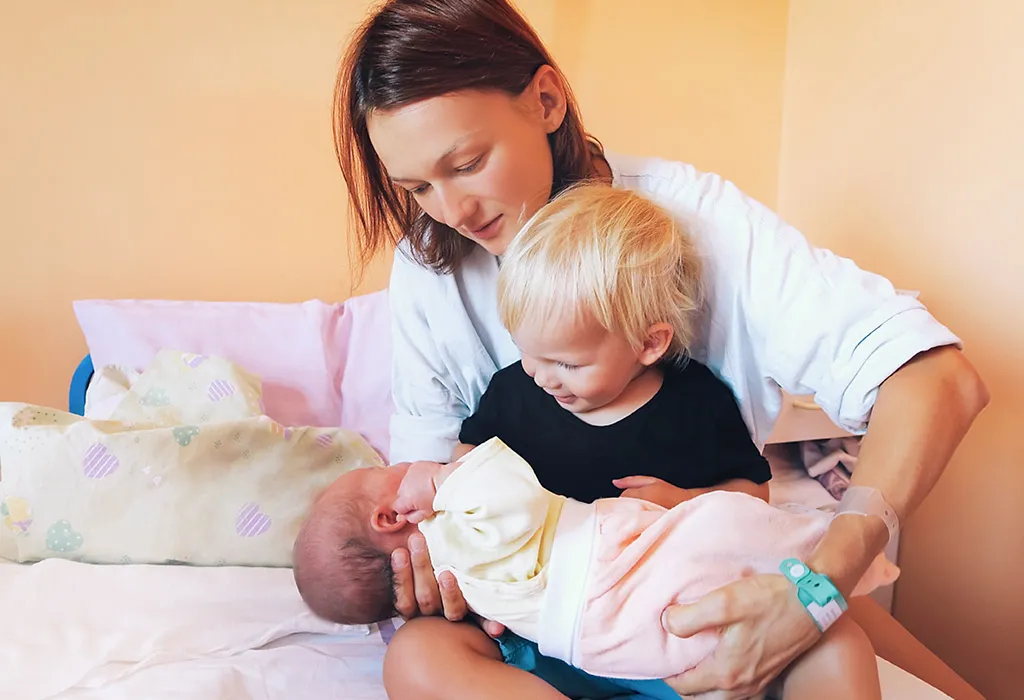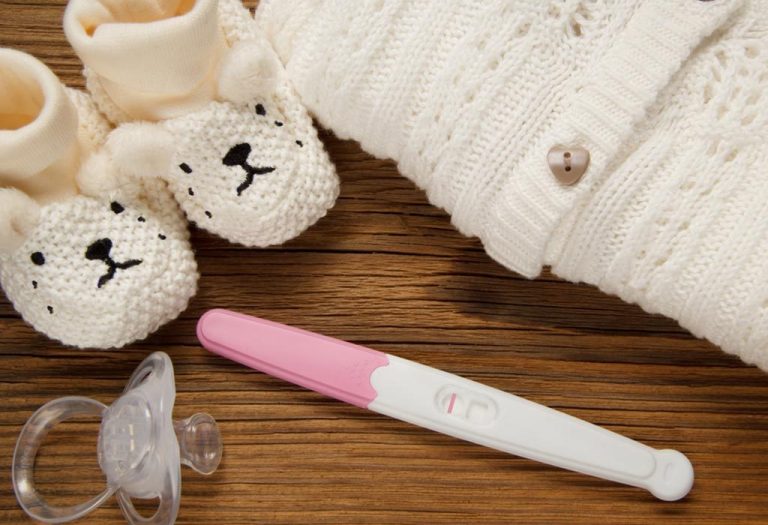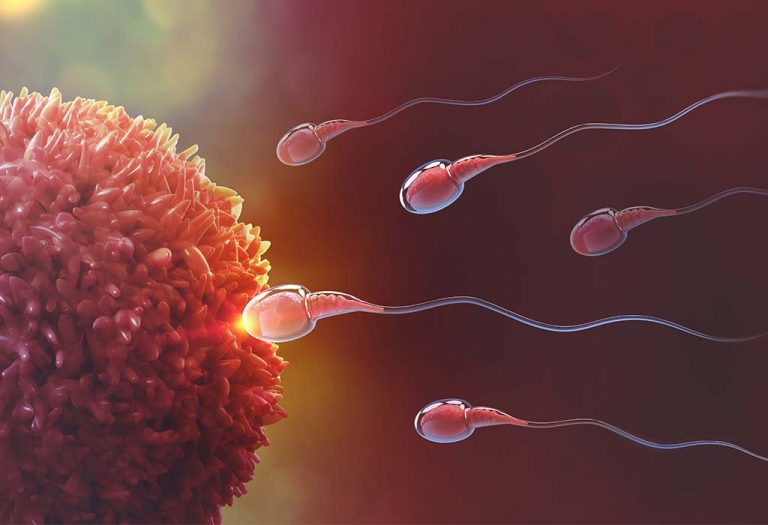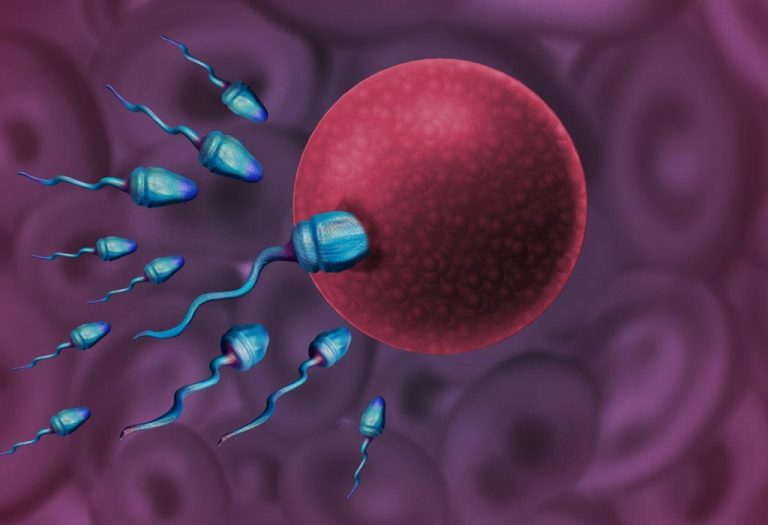How to Prepare for a Second Baby?

Being a parent is a heartwarming and life-changing experience. However, it comes with responsibilities and lifestyle changes that are paramount to ensure your child’s and your family’s well-being as a unit.
Preparing for what is to come is essential if you long for another child to extend your family or give your child an adorable sibling. Planning for your second child can seem deceptively easy as you’ve already been through raising a child before. However, new complications such as your biological clock, finances, and firstborn come into the picture. Here, we touch upon the things to consider while preparing for your second baby.
What Is the Best Time to Have a Second Baby?
When to have a second baby can cause a dilemma among many couples. There is no right answer to this, as many factors, such as health, finances, and personal preferences, come into play. Many women have had pregnancies at the age of 40, and there have been many families with few resources who have been able to raise two kids successfully. Below are factors that will help you decide the best time to have a second child. Once these factors are met, it will make it easier for you to have your second baby.
How to Decide Whether You Are Ready to Have a Second Baby or Not?
Before you go ahead with conceiving a second child, it is vital to ask yourselves a few questions to ascertain if having this child is the best step forward. Some of these questions include:
- Are you emotionally prepared to go through the rigour of pregnancy again?
- Are you happy to share your attention between your two children, and can you balance it?
- Do you think the age difference between your kids (whether short or big) will be manageable
- Are you equipped to handle probable sibling rivalry effectively?
- Do you think you can still spend valuable time with your spouse or partner while ensuring your child gets the best care?
- Are you financially equipped to handle the expenses of a second child?
While there are many more considerations to evaluate, these questions will help you create a list of pros, cons, and reasons for having a second child. Read on to find other things to consider before preparing for baby 2!
How Does a Second Pregnancy Differ From a First Pregnancy?
All pregnancies are beautiful in the eyes of the parents, but having a second child brings about changes that might differ from your first pregnancy. Here are some of the differences you might experience between the first pregnancy and the second:
- Baby bumps become apparent earlier due to the expansion of your muscles and abdomen caused by the first pregnancy (1)
- You might experience your baby kicking and Braxton Hicks contractions a lot earlier (1)
- Symptoms like nausea, constipation, indigestion, and morning sickness might come a lot sooner (1)
- Experience more fatigue as you have to juggle your pregnancy as well as your role as a parent to your first child (1)
- The onset of back pain is sooner (1)
- Shorter labour (1)
Things to Consider While Planning for a Second Pregnancy
Here are a few points to consider:
1. Your Physical Health
Getting pregnant means significant changes in your body, which can only happen if your health is optimal. Even if your first pregnancy was not too long ago, you can have a second baby if you’ve recovered and are in good health (2).
2. Your Age
As women age, their menstrual cycles begin to change regarding egg production. This is because women are born with a limited supply of eggs and will eventually run out. With increasing age, the quality of the eggs also reduces, thus increasing the chances of miscarriage or genetic defects (3).
3. Father’s Age
While planning a second child, your partner’s age is also under the scanner. Studies have shown that men show a marked decrease in their sperm quality once they turn 35 (4).
4. Finances
Finances play a crucial role in second-child planning, as the costs immediately double, straining household income (5). Are you and your partner both working? Do you plan on sending both of your children abroad for higher education? Such questions must be thought about well in advance when planning your finances.
5. Goals As a Family
Raising a second child means you and your partner must be on the same page. There may be instances where you both may differ in opinion. One may want to wait for a while or not have kids. You both must communicate your goals and how you can reach a middle ground. This is because your parenting goals and style can impact your child’s grown and development (6).
6. Career
You will have to make tough career decisions to make time for the newborn, including whether you are taking a sabbatical or quitting altogether. Additionally, if you continue working while pregnant, you have to be mindful of health implications of stressful work, long work hours, being on your feet, or risky jobs (7).
7. Age Gap
While planning for a second child, your first child comes into the equation. Would you like your children to be playmates? In that case, it’s better to have a smaller gap as they would be of the same age group and get along well.
8. Helping Hands
When you get pregnant for the second time, extra help becomes important because your first child needs to be looked after. Do you have a person that you trust to babysit your child? Do your parents live close by so that they can lend a hand with your baby? It is important to have support during pregnancy to ensure less stress, better emotional and physical state, and overall welfare of the mother and child (8).
9. Accommodation
Having a new child in the family would mean reassessing your living space. You may need to move into a bigger home once the baby grows up, or the kids may need to bunk in the same room.
10. Delivery
If you’ve had a caesarean section for your firstborn, you would have to repeat the process if the gap is less than two years. This is because, in the next pregnancy, you will need to wait for labour pains, which cannot be induced. It is not recommended to deliver vaginally in case you have had a c-section before. You must, therefore, go for a multi-speciality hospital as a big set-up becomes necessary to take care of any emergency that can arise.
How to Prepare Yourself for the Second Child?
Below are some tips for second-pregnancy planning:
1. Go for a Check-Up
When you and your partner decide that it’s time for a second baby, make sure you get a blood test done. A blood test can help confirm pregnancy if you’ve already started trying. Apart from that, it also can help check the iron content in your body. Most women become anaemic during pregnancy due to the amount of blood that is needed to sustain themselves and the baby. With a blood test, you can devise a good plan to improve your iron content and avoid complications like maternal anaemia.
2. Keep a Close Eye on Your Menstrual Cycle
Even if you don’t use birth control, a missed period doesn’t always mean that pregnancy is around the corner. After the first baby, your menstrual cycle could be out of sync. You’ll need to chart out your ovulation days to determine the optimal conception time. It may take a couple of weeks to get it right, so be patient and keep trying!
3. Hit the Gym
Getting back into shape after your first pregnancy is challenging but achievable. Most moms get back on their feet after a strict exercise regime, but if you’re not one of them, you must start now. Weight gain can inhibit fertility and can sometimes cause hormonal imbalances, making it difficult to track your ovulation.
4. Read Up on Male Infertility
Pregnancy isn’t a woman’s job alone. Ensure you and your partner are familiar with the nuances of male fertility. Habits like smoking marijuana and alcohol severely curtail the sperm count in men. Obesity has been linked to male infertility, so both you and your partner can hit the gym together.
5. Figure out the Best Time to Get Pregnant
If you’re in your early 30s and are worried that your fertility may be affected, it would make sense to have your second baby as soon as possible. However, it’s also crucial that you think about your firstborn. Many couples wait for about three years before conceiving their second child as the first child is independent enough by then, and the pregnancy can be given priority.
6. Look for Alternatives
If you have hit a wall despite trying to conceive for over half a year, looking at an IVF specialist makes sense. Infertility after conceiving for the first time can take place due to increased age, health problems, lifestyle changes, etc.
Things to Do Before Your Second Baby Is Born – Quick Checklist
If you have decided to welcome a second angel into your life, ensuring you are equipped with all they need is important. Here are some things you should consider before welcoming your secondborn into your new home and your loving family:
- Arrange for a babysitter so your firstborn is not ignored during labour and delivery. This will be a point where you both will be separated, and someone else you trust will have to take your role. This can even be your partner, parents, or a close relative that you trust.
- Raising a baby can be expensive, so it wouldn’t hurt to salvage supplies from the last time you were pregnant. Your old pregnancy gown, unisex infant clothes, and booties can be reused. Old sheets with stains can be washed and reused.
- As you’re going to be in the hospital and not within immediate reach of your firstborn, pack a bag for her. This can contain items like her favourite toy and activity book she can carry when she visits you in the hospital.
- Have a schedule set that your toddler will follow every day. Have a practice session with whoever will care for your child in your absence. That way, any doubts can be clarified in person rather than on an inconvenient phone call at the hospital.
- Keep a journal for your babysitter. In it, you can leave little details about your firstborn that the babysitter must know. It could be a list of cartoons your child likes, activities that can keep her occupied, snacks that she would enjoy, etc. You can even write reminders of any medication your child might need.
- If your firstborn is still young, you can invest in a double stroller for convenient travel.
- Stock up on baby essentials such as diapers, nursing bras, breast pumps, a baby monitor, etc.
- Have a baby shower with all your close friends and relatives. This is also a great time to ask for volunteers.
- Make food arrangements before you leave. You can do this by cooking in advance, recruiting your family and friends, or buying readymade meals from outside. Ensure you stock up on your firstborn’s favourite snacks to keep them happy.
- Scout for locations in the house where you can keep your baby, and divide your home into two zones – the first zone can be places where your firstborn can’t reach the baby and ‘over love’ them, and the second zone can be areas where your firstborn can reach the baby, but only under your watchful eye.
- Prepare for natural birth by watching your weight and exercising regularly. Kegel and pelvic exercises can help smoothen the labour process.
- Once you’ve brought your second child home, decide where you want him/her to stay. This means bunking with their older sibling, temporarily being set up in their room, or getting a new room.
- Decluttering the house comes naturally to pregnant women, and it is called ‘nesting’. Take advantage of this by babyproofing areas and ensuring everything is in place before your second baby is home. Once you’re back from the hospital, you’ll have to manage time for both your kids and for miscellaneous errands.
- Set up a diaper station with all the requirements, such as wipes, diapers, creams, etc.
- If you feel that breastfeeding is lengthy, you could employ a wet nurse so you can spend time with your firstborn.
Tips for Preparing Your Child for a New Sibling
As essential as it is to prepare yourself for the baby you’re about to have, it’s just as vital to equip your firstborn with the tools they need to adjust to the new arrival in the family. Here are some helpful tips to prepare your child for their new sibling:
- There is no need to inform your toddler about your pregnancy immediately. Concepts like pregnancy and childbirth are complicated topics that can be tackled later.
- Since toddlers have a poor concept of time, even a few months can seem like an eternity. They may bother you with their curiosity about the baby’s arrival daily. Wait for a while before telling them about their soon-to-arrive sibling.
- While breastfeeding, find a spot where your firstborn can sit next to you.
- Your firstborn may not be used to sharing —a gift-giving ceremony will help prepare her for it.
- Work on making your toddler independent by letting her do small activities alone. This will make her feel that she is a grown-up and let you focus on your newborn.
- Before your second child is born, try not to be too indulgent with your firstborn. This is because a shift in your attention immediately after the baby is born may make your firstborn jealous.
- You can slowly start building a nurturing habit in your firstborn by asking her to take care of a stuffed doll.
- Make a secret code that only you and your toddler can understand. If your firstborn feels left out, you can always cheer her up by talking in a code only you can understand. Later, you could teach your second child as well.
- Make a scrapbook of memories to help your toddler remember that they, too, received special treatment when they were small. This will reduce any feelings of jealousy or resentment your child may feel.
- Books such as ‘Once Upon a Baby Brother’ by Sarah Sullivan and I’m a Big Sister’ by Joanna Cole can help introduce children to the concept of siblings. Reading these books can teach children how siblings must care for each other. Additionally, they may love the stories so much that they want their siblings.
FAQs
1. Is there a right time to prepare for a second baby?
Every family unit is different; the ‘right time’ depends on your circumstances. Some of these include the emotional and psychological well-being of both would-be parents, financial stability, medical conditions, the age and needs of your firstborn, and the resolve to take on more responsibilities. Discuss these subjects to see if this is best for you both.
2. Will my firstborn be okay with having a sibling?
It is crucial to sit your firstborn down and prepare them for the little brother or sister they are about to have. Reassure them and let them know that you still love them and are there for them. Show them how much fun it will be to have a new best friend and how they can share their things. Be patient with their curiosity and answer questions calmly. Above all, remember to take care of them and balance the attention and nurturing you give to both of your kids.
The process of 2nd baby planning helps answer the challenges of taking care of your firstborn while pregnant with your second baby. It also lets you consider the future, as raising two kids is twice the effort. However, the rewards are twice as good, and many families are happy that they have two children instead of one.
References/Resources:
1. How does a second pregnancy differ from the first?; Tommy’s; https://www.tommys.org/pregnancy-information/im-pregnant/ask-a-midwife/how-does-second-pregnancy-differ-first
2. Planning for Pregnancy; Centers for Disease Control and Prevention; https://www.cdc.gov/preconception/planning.html
3. Having a Baby After Age 35: How Aging Affects Fertility and Pregnancy; The American College of Obstetricians and Gynaecologists; https://www.acog.org/womens-health/faqs/having-a-baby-after-age-35-how-aging-affects-fertility-and-pregnancy
4. How does a father’s age affect fertility and a baby’s health?; UT Southwestern Medical Center; https://utswmed.org/medblog/older-fathers-fertility/
5. How do pregnancy and newborns affect the household budget?; Australian Institute of Family Studies; https://aifs.gov.au/research/family-matters/no-88/how-do-pregnancy-and-newborns-affect-household-budget
6. 3 Powerful Types Of Parenting Goals That Will Change Your Life; Penn State Pro Wellness; https://prowellness.childrens.pennstatehealth.org/3-powerful-types-of-parenting-goals-that-will-change-your-life/; December 2022
7. Corchero-Falcón, M. D. R., Gómez-Salgado, J., García-Iglesias, J. J., Camacho-Vega, J. C., Fagundo-Rivera, J., & Carrasco-González, A. M.; Risk Factors for Working Pregnant Women and Potential Adverse Consequences of Exposure: A Systematic Review; International journal of public health; https://www.ncbi.nlm.nih.gov/pmc/articles/PMC9977819/; 2023
8. Al-Mutawtah, M., Campbell, E., Kubis, H. P., & Erjavec, M.; Women’s experiences of social support during pregnancy: a qualitative systematic review. BMC pregnancy and childbirth; https://www.ncbi.nlm.nih.gov/pmc/articles/PMC10638802/; 2023
Also Read:
Second Pregnancy
Second Baby Pregnancy Signs and Symptoms
Calculate Your Pregnancy – By Months, Weeks and Trimester
Was This Article Helpful?
Parenting is a huge responsibility, for you as a caregiver, but also for us as a parenting content platform. We understand that and take our responsibility of creating credible content seriously. FirstCry Parenting articles are written and published only after extensive research using factually sound references to deliver quality content that is accurate, validated by experts, and completely reliable. To understand how we go about creating content that is credible, read our editorial policy here.





































